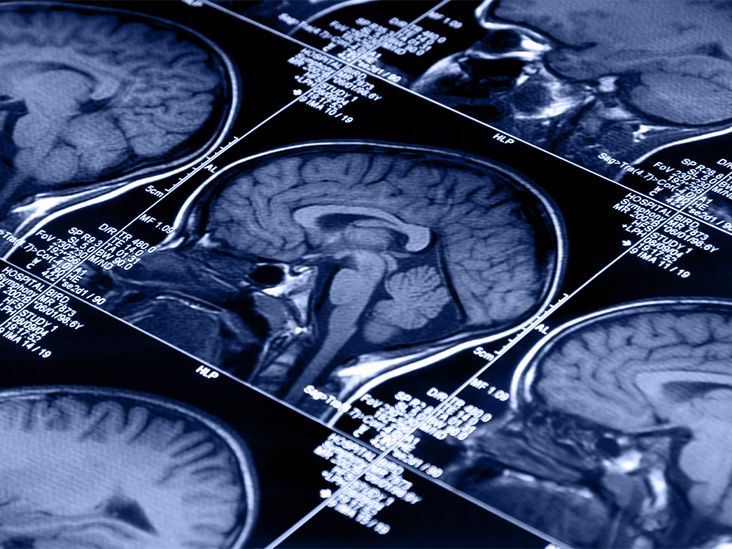The Effects of Pre-Workout Supplements on ADHD
Attention deficit hyperactivity disorder (ADHD) is a common neurodevelopmental disorder characterized by inattentiveness, hyperactivity, and impulsiveness. It often begins in childhood and can persist into adulthood. The exact causes of ADHD are unknown, but research suggests genetics and differences in brain development play major roles.
There is no cure for ADHD, but various treatments can help manage symptoms. Prescription medications like Adderall and Ritalin are commonly used to treat ADHD. However, some people are concerned about the side effects of these stimulant medications and look for alternative options, like pre-workout supplements.
What are Pre-Workout Supplements?
Pre-workout supplements are powdered drink mixes taken before exercise to boost energy, focus, strength, and endurance. They often contain ingredients like caffeine, creatine, amino acids, nitrates, and herbal extracts.
Many pre-workout supplements include stimulant ingredients that can temporarily increase alertness, concentration, and energy levels. As such, some people with ADHD use pre-workout supplements in hopes of achieving similar effects as prescription ADHD medications.
Potential Benefits of Pre-Workout Supplements for ADHD
There are a few reasons why pre-workout supplements may benefit some people with ADHD:
- Improve focus - Ingredients like caffeine and L-tyrosine may enhance concentration and mental alertness.
- Increase motivation - Pre-workouts can boost energy and drive to start tasks.
- Reduce hyperactivity - The combination of exercise and pre-workout stimulants may help expend excess energy.
- Enhance cognition - Certain amino acids in pre-workouts may support brain function.
A 2015 study found a pre-workout supplement containing caffeine, creatine, amino acids, and B-vitamins improved attention and mental energy in teenage males with ADHD. The effects were strongest 30-150 minutes after taking the supplement.
Potential Risks and Downsides
While pre-workout supplements may offer some benefits, there are also potential risks and downsides to consider:
- Side effects - Pre-workouts can cause jitteriness, headaches, insomnia, and stomach upset due to stimulants like caffeine.
- Interactions - The stimulants may interact with ADHD medications or other supplements.
- Tolerance build up - Over time, larger doses may be required to achieve the same effects.
- Questions on safety - Unlike prescription ADHD meds, the long-term safety of pre-workout supplements is less established.
- Not a substitute - Pre-workouts are not equivalent to ADHD meds and should not replace doctor-prescribed treatment.
- Contains banned substances - Some pre-workout supplements have been found to contain banned stimulants not listed on the labels.
Are Pre-Workouts Better Than Caffeine Alone?
Many pre-workout supplements contain 300mg or more of caffeine per serving. This is often significantly higher than the amount of caffeine consumed from coffee or energy drinks.
While the caffeine alone may provide some benefits for ADHD symptoms, the other ingredients in pre-workout formulas are unlikely to offer additional advantages. There is little evidence that supplement ingredients like creatine, beta-alanine, citrulline, or B-vitamins are beneficial for ADHD.
Safety Precautions for Pre-Workout Use
Anyone considering using pre-workout supplements to help manage ADHD symptoms should take the following safety precautions:
- Talk to your doctor before use, especially if on other medications
- Start with half a serving to assess tolerance
- Avoid use late in the day to prevent sleep disruption
- Drink plenty of water before, during, and after use
- Take breaks from use to prevent building tolerance
- Purchase from reputable companies and check label accuracy
- Discontinue use if experiencing negative side effects
Other Natural Alternatives for ADHD
While pre-workout supplements may help some people with ADHD, they should be viewed as just one option. It is best to work with a healthcare provider to find the most effective ADHD management strategy.
Some other natural alternatives that may help improve ADHD symptoms include:
Dietary Changes
Eliminating artificial food dyes, sodium benzoate preservatives, and processed foods may alleviate ADHD behaviors in some people. Try removing suspect items from the diet for 2-4 weeks to see if it makes a difference.
Exercise
Regular aerobic exercise and activity improves executive functioning, focus, stress management, and impulse control. Aim for 30-60 minutes of exercise 3-5 days per week.
Cognitive Behavioral Therapy (CBT)
CBT can teach strategies to help manage time, improve organization, control impulses, and motivate task completion. Both individual and group CBT may benefit those with ADHD.
Biofeedback Training
Biofeedback uses real-time monitoring of brain waves, breathing, and heart rate to teach self-regulation of attention and behavior. It may help some people with ADHD learn to intentionally control their state of arousal.
Essential Oils
Inhaling stimulating essential oils like peppermint, rosemary, or ylang ylang may improve focus and concentration for some people with ADHD. Diffusing the oils at home or work is a simple method to try.
Mindfulness Meditation
The practice of present-moment mindfulness has been shown to reduce distractibility and mind-wandering in those with ADHD. Even 5-10 minutes per day can help strengthen attention.
Melatonin
For those with ADHD who have trouble sleeping, melatonin supplements may help improve sleep quality and regulate the body's circadian rhythm. Always consult a doctor before use.
The Bottom Line
Pre-workout supplements may provide some benefits for improving attention, motivation, and hyperactivity in those with ADHD. However, they are not equivalent to prescription stimulant medications, and their long-term safety and efficacy are less certain.
Pre-workout supplements should be used cautiously under medical supervision. They are best viewed as just one option in a comprehensive ADHD management plan that also utilizes lifestyle changes, therapy, and counseling.
By implementing a holistic approach, many people with ADHD can function at their best while minimizing dependence on medications.
FAQs
Can pre-workout supplements help with ADHD symptoms?
Pre-workout supplements containing stimulant ingredients like caffeine may provide some benefits for improving focus, concentration, motivation, and hyperactivity in people with ADHD. However, they are not equivalent to prescription ADHD medications.
Are pre-workout supplements safe for people with ADHD?
Pre-workout supplements do carry risks like side effects, interactions with medications, build up of tolerance, and potential bans on ingredients. Those with ADHD should use pre-workout supplements with caution under medical supervision.
Should pre-workout supplements replace ADHD prescription medications?
No, pre-workout supplements should not be used as a substitute for prescription stimulant medications used to treat ADHD. Pre-workouts are not regulated in the same way as medications and their long-term effects are less known.
Can children with ADHD safely take pre-workout supplements?
Pre-workout supplements are not recommended for children under 18 years old. The effects on growing bodies are not well studied. Children with ADHD should use prescription medications as directed by their pediatrician.
What happens if I take pre-workout supplements every day?
Taking pre-workout supplements daily can lead to the build up of tolerance, requiring larger doses to get the same effect. It is best to limit pre-workout use to a few times per week and take breaks from use periodically.
Disclaimer: This article is for informational purposes only and does not constitute medical advice. Always consult with a healthcare professional before starting any new treatment regimen.
Related Coverage
Temporal lobe ADD isn't a real diagnosis. Learn the facts about symptoms, brain science, and effective treatment options....
Adderall shortages can disrupt treatment for those with ADHD. Learn causes of shortages, impacts, coping strategies, alternative medications, and self-care....
Find the Azstarys cost in 2025, with cash prices, insurance details, coupons and simple steps to cut your out‑of‑pocket spend....
Research shows gluten can worsen ADHD symptoms in children. Learn how gluten sensitivities impact hyperactivity, concentration and behavior. Tips for gluten-free diets....
If you think you may have ADHD, there are steps to take before meeting with your doctor, like tracking symptoms and reviewing your history. Openly discuss your concerns and learn about diagnostic processes and possible ADHD treatments....
If struggling with ADHD symptoms, getting properly evaluated is key. Here is guidance on finding a specialist, preparing for assessment, understanding diagnosis, and accessing treatment....
Explore the potential interactions between the herbal supplement ashwagandha and the ADHD medication Adderall, and the importance of open communication with healthcare professionals....
Learn which foods and drinks like grapefruit, high-fat meals, caffeine & alcohol can interact poorly with Strattera ADHD medication. Understand safer food options....
Daytrana side effects such as skin irritation, insomnia, and appetite loss can be eased with timing, placement, and diet tips....
Shortages of ADHD medication Ritalin and its generic forms are impacting access in 2023. Learn more about why this is happening, possible alternatives, and ways to mitigate the issue....







